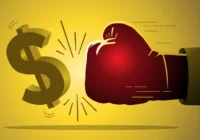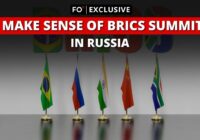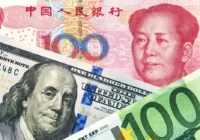The French are spending more money abroad than they are earning from abroad.
I recently attended a conference that looked at France’s domestic economic situation, and the impact that has on the country’s global and European role.
According to budgets published in October, France and Italy are failing to meet the eurozone’s requirements for reducing government debts and deficits to sustainable levels.
If France, as a big country making up 20% of the European Union’s (EU) gross domestic product (GDP), were to be exempt from EU debt and deficit rules — in ways that are not open to smaller eurozone countries — this would do great damage to the credibility of the euro, and could potentially increase the interest rate governments must pay to borrow. It is, therefore, very important to Ireland that France overcome its problems.
In recent years, France has lost competitiveness, and is consequently running a balance of payments deficit. In other words, its people are spending more abroad than they are earning from abroad. The French economy is projected to grow by only 1% in 2015, against a projected growth of 2% in Germany and Spain, 2.7% in Britain and almost 3% in Greece and Sweden. The loss of competitiveness of France is due to several factors:
1) Fewer people are working less hours. For example, of people between 55-64 years of age, only 44% are working in France, as against 73% in Sweden, 65% in Japan, 60% in the United States and 58% in Britain.
2) There is substantial youth unemployment, because young people find it hard to get on the career ladder due to an overregulated labor market, which protects existing jobs at the cost of discouraging the creation of new ones. Last year, 80% of all new jobs created in France were on temporary contracts.
3) The bigger a company grows, the more rigid the rules are that apply to it in terms of the right to hire and fire. So, while France has some of the most successful big companies in the world, it lacks large corporations of middle-sized export-oriented firms like Germany has. Ninety percent of all French companies have fewer than ten employees, and they have strong incentives to stay small.
4) Monopolistic practices exist in a number of sectors controlled by the state and in some private professions. The vested interests protecting these monopolistic practices are very strong. These inefficiencies contribute to the loss of exports by French companies.
The stimulus for French growth will have to come both from inside and outside France. French people save a lot, and if they could get the confidence to spend a little more of their savings, that would help.
There was a strong sense among participants at the conference that the current socialist government of French Prime Minister Manuel Valls was making a serious effort to tackle these underlying weaknesses, but that the dividends of some reforms, while very substantial, would be slow in coming — perhaps not in time for the 2017 elections.
There is a risk that Valls will lose his majority because of defections in his own party. Meanwhile, the opposition, the Union for a Popular Movement (UMP), is split on personality questions. The National Front is making huge strides in the polls, but its economic policy would break up the EU and introduce heavy state controls, which would be incompatible with France’s global economic success.
Faster growth is crucial, and the margin between success and disaster is very narrow. If the French economy grows at only 1% per annum over the coming years, France could be on the road to default and a social crisis. But if it can manage a growth rate of 1.6% or better, it will work its way out of difficulties.
The stimulus for French growth will have to come both from inside and outside France. French people save a lot, and if they could get the confidence to spend a little more of their savings, that would help. Likewise, if Germany — which has been neglecting its infrastructure — set out to invest more, that would help French exports. The trouble is French and German economists and politicians have very different intellectual assumptions, and dialogue between them can become a dialogue of the deaf.
Meanwhile, partly because it was wise enough to stay out of the Iraq debacle in 2003, France has the confidence to intervene alone in places like Mali, Libya and the Central African Republic.
France retains a strong nuclear deterrent and a civil nuclear industry, which don’t inflict the sort of climate damage that other EU countries’ energy industries do.
Politics is important. France’s presidential system enables it to be strong and decisive in international affairs. But that strength does not extend to domestic economic policymaking, where factionalism and introspective thinking prevent the creation of a “grand coalition for reform,” of the kind that has enabled countries like Germany and Mexico to deal decisively with long-standing blockages to growth.
The views expressed in this article are the author’s own and do not necessarily reflect Fair Observer’s editorial policy.
Support Fair Observer
We rely on your support for our independence, diversity and quality.
For more than 10 years, Fair Observer has been free, fair and independent. No billionaire owns us, no advertisers control us. We are a reader-supported nonprofit. Unlike many other publications, we keep our content free for readers regardless of where they live or whether they can afford to pay. We have no paywalls and no ads.
In the post-truth era of fake news, echo chambers and filter bubbles, we publish a plurality of perspectives from around the world. Anyone can publish with us, but everyone goes through a rigorous editorial process. So, you get fact-checked, well-reasoned content instead of noise.
We publish 2,500+ voices from 90+ countries. We also conduct education and training programs
on subjects ranging from digital media and journalism to writing and critical thinking. This
doesn’t come cheap. Servers, editors, trainers and web developers cost
money.
Please consider supporting us on a regular basis as a recurring donor or a
sustaining member.
Will you support FO’s journalism?
We rely on your support for our independence, diversity and quality.







Comment
The European Union is a conglomerate of independent cultures, but the Spirit is the Union. And from that Point-Of-View America stands the greatest Intellect to Guide any emerging Union.
From the above referenced Platform, let us begin:
I am an American and expressly respect my position in this world.
France, your are in the midst of a constant change cycle, from which you must be dependent on your change to change. How can a single lady find the gentleman who is not afforded a Gentleman’s character? The answer is for courage to attempt to assist her, for his own personal life.
France brought France to the EU. So her solutions lay elsewhere. From here I think her best Mindset solutions are:
1. Expect the pain of today. Austerity is appropriate. Contraction being at the expense of your short term confidence.
2. The notion that spending abroad exacerbates home economics is a farce. Short term problems only see problems that see today. The Chicago School Of Economics (Friedman) is prescient, so proves themselves constantly. I recommend “Free To Choose” by Milton Friedman as a beneficial point-of-view. I think a Frenchman abroad is a serious form of Power. Global trends should better accommodate such Power.
3. Unemployment is a consequence of poor decisions, be it by the turbulence of the current economic times, or by the lack of labor productivity. The Laws were not invented, but discovered. And as a Discoverer, America is the Law. Change is inevitable. I have experienced change (I am more French than the French yet understand).
4. Lastly, employment is the only answer if employment is the only solution. Find demand you will find demand (employment). For culture is the change we observe.